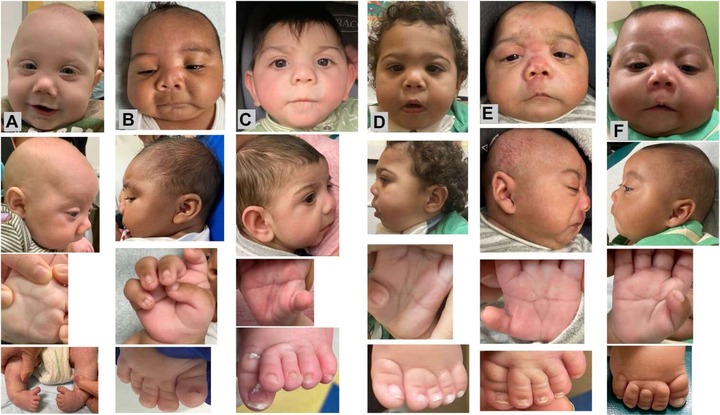Medical Professionals Uncover Novel Syndrome in Children Linked to Fentanyl Exposure in Pregnancy

On December 5, 2023, NBC News unveiled a deeply unsettling revelation that could reshape the landscape of prenatal health. Doctors may have stumbled upon a new syndrome linked to fetal exposure to fentanyl, an exceptionally potent opioid. This alarming discovery, outlined in a report published by Genetics in Medicine Open, has sent shockwaves through the medical community, raising profound concerns about the consequences of fentanyl use during pregnancy. Over 10 infants, and potentially more than 12, have exhibited severe birth defects believed to be connected to fentanyl exposure in the womb, ranging from cleft palate to genital irregularities and underdeveloped thumbs.

The gravity of this potential syndrome prompted a cascade of emotions, and Dr. Elizabeth Cherot, President of the March of Dimes, articulated the shared concern within the medical community, cautioning, “As we see these shared characteristics identified, we may be unroofing a real syndrome.” However, Dr. ( 🔗 Former Walmart Employee Seeks Retribution After Abrupt Termination ) Cherot clarified that she had not personally attended to any of the affected infants. The initial findings, unveiled by Erin Wadman, a genetic counselor at Nemours Children’s Health, and her colleagues, traced back to six affected babies in Delaware, with additional cases emerging in California, Massachusetts, and Rhode Island. (news-us.feednews.com)
The journey to identifying this potential syndrome began when Wadman noticed striking similarities in the physical features of a baby she was consulting on and others she had encountered before. This revelation led to suspicions of a link to Smith-Lemli-Opitz syndrome, impacting cholesterol metabolism during fetal development. However, genetic testing failed to unveil the presence of this or any known genetic variant associated with birth defects.
The hypothesis gaining traction is that fentanyl might disrupt cholesterol metabolism in the developing fetus, precipitating the observed birth defects. Despite the absence of direct testing on fentanyl’s impact on cholesterol metabolism, the authors of the report find the hypothesis biologically plausible. The babies included in the study tested positive for fentanyl exposure at birth, indicating significant drug exposure throughout gestation. However, confirming the connection between fentanyl and the observed birth defects demands further research, considering factors like potential contaminants in the drug supply or the co-use of other substances by mothers.
Dr. Nora Volkow, Director of the National Institute on Drug Abuse, emphasized the significance of reports like this to shed light on potential issues and trigger comprehensive investigations. The Healthy Brain and Child Development Study, initiated by the National Institute on Drug Abuse, aims to evaluate the consequences of drug exposures during pregnancy, offering a beacon of hope for understanding and addressing such critical issues. ( 📈 This December, Invest Your Time in ‘The Nutcracker’ )
As researchers delve deeper into the fentanyl-cholesterol hypothesis, Dr. Karoly Mirnics at the University of Nebraska Medical Center plans to study the blood of affected babies to discern the underlying causes. This research seeks to unravel whether the birth defects are directly linked to fentanyl or if genetic factors play a role in the intricate web of consequences. Driven by the urgency of the situation, collaboration between experts at Nemours and others who believe they’ve encountered similar cases may provide a collective understanding of potential risks and mechanisms.
While fentanyl use has seen a surge in recent years, there is no current evidence indicating a parallel increase in birth defects associated with the drug. Dr. Brian Smith at Duke University Medical Center acknowledged common symptoms in babies exposed to fentanyl but refrained from commenting on the specific syndrome identified in the study. Dr. Howard Saal at Cincinnati Children’s and Dr. Ahmed Ahmed at the Cleveland Clinic, both recognizing cases of birth defects linked to drug exposure during pregnancy, aim to collaborate with the Nemours research team, fostering a united front in the quest for knowledge and solutions. This revelation marks a pivotal moment, urging society to confront the potential consequences of drug exposure during pregnancy and rallying experts to delve into the depths of uncertainty for the sake of maternal and fetal well-being.


